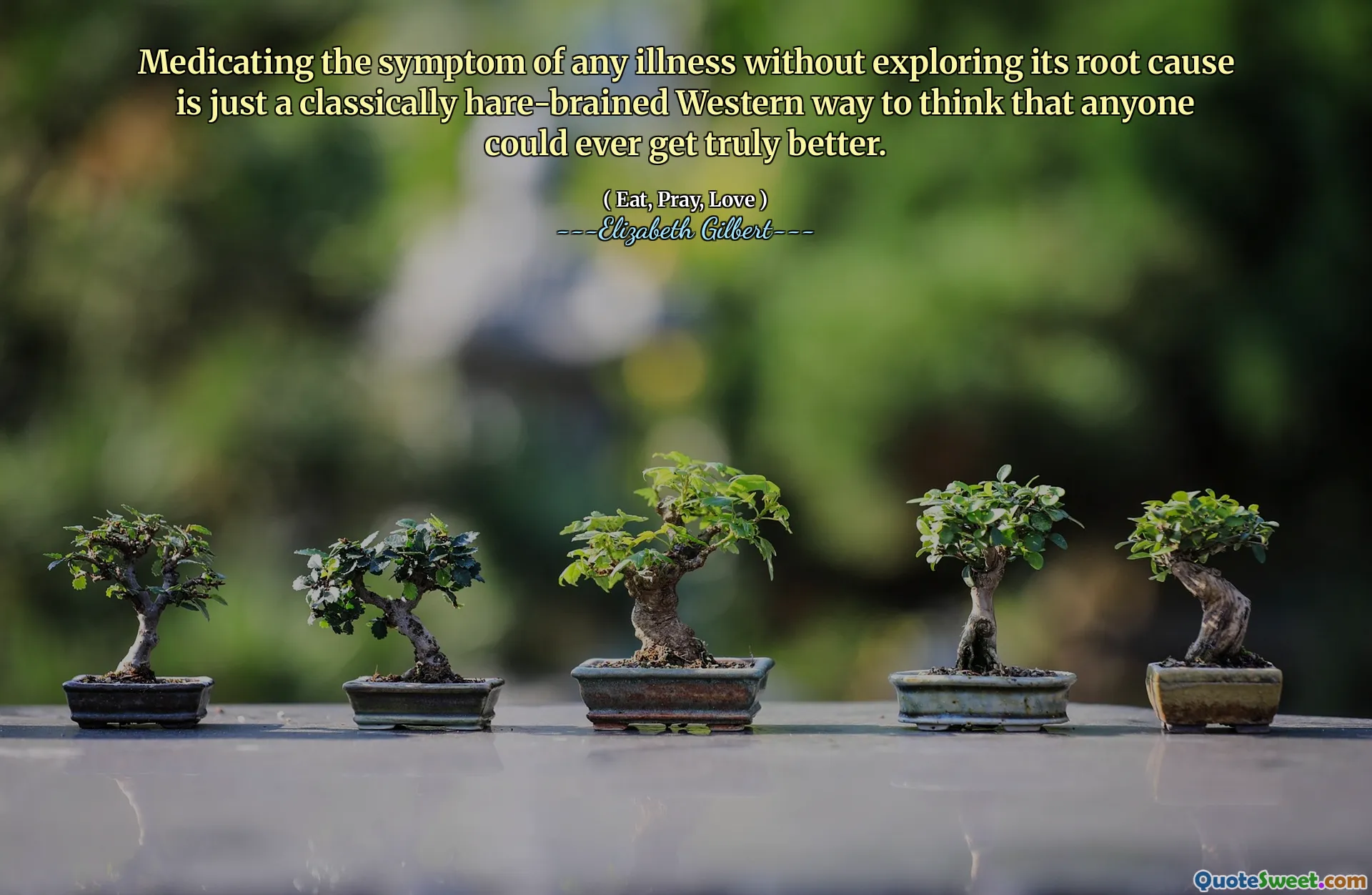
Medicating the symptom of any illness without exploring its root cause is just a classically hare-brained Western way to think that anyone could ever get truly better.
This quote highlights a fundamental approach in health and wellbeing—addressing symptoms versus understanding and treating underlying causes. Often in Western medicine, the focus tends to be on immediate relief, such as alleviating pain, reducing fever, or suppressing symptoms with medication. While effective for short-term relief, this approach can be somewhat superficial if it neglects the root issues underpinning a health problem. It suggests that true healing requires deeper investigation, akin to peeling back layers of an onion to reveal the core problem. The metaphor used—calling this approach 'hare-brained'—reflects a critical view of short-sighted strategies that might overlook the holistic nature of health, emphasizing balance and root causes over symptomatic treatment. Recognizing the importance of uncovering the root cause aligns with more integrative and holistic health philosophies, which consider emotional, psychological, environmental, and physical factors as interconnected components of well-being. This perspective encourages us to think differently about how we approach problems—whether they are health-related, personal, or societal—prompting a shift from surface-level fixes to systemic change. By doing so, we stand a better chance of achieving sustainable improvements, genuine recovery, and overall better quality of life, rather than temporary relief that might mask deeper issues. This approach also fosters a mindset of curiosity, responsibility, and attentiveness to health and life’s complexities, reminding us that lasting solutions often require patience, investigation, and a holistic viewpoint, rather than quick fixes that only paper over the cracks.











